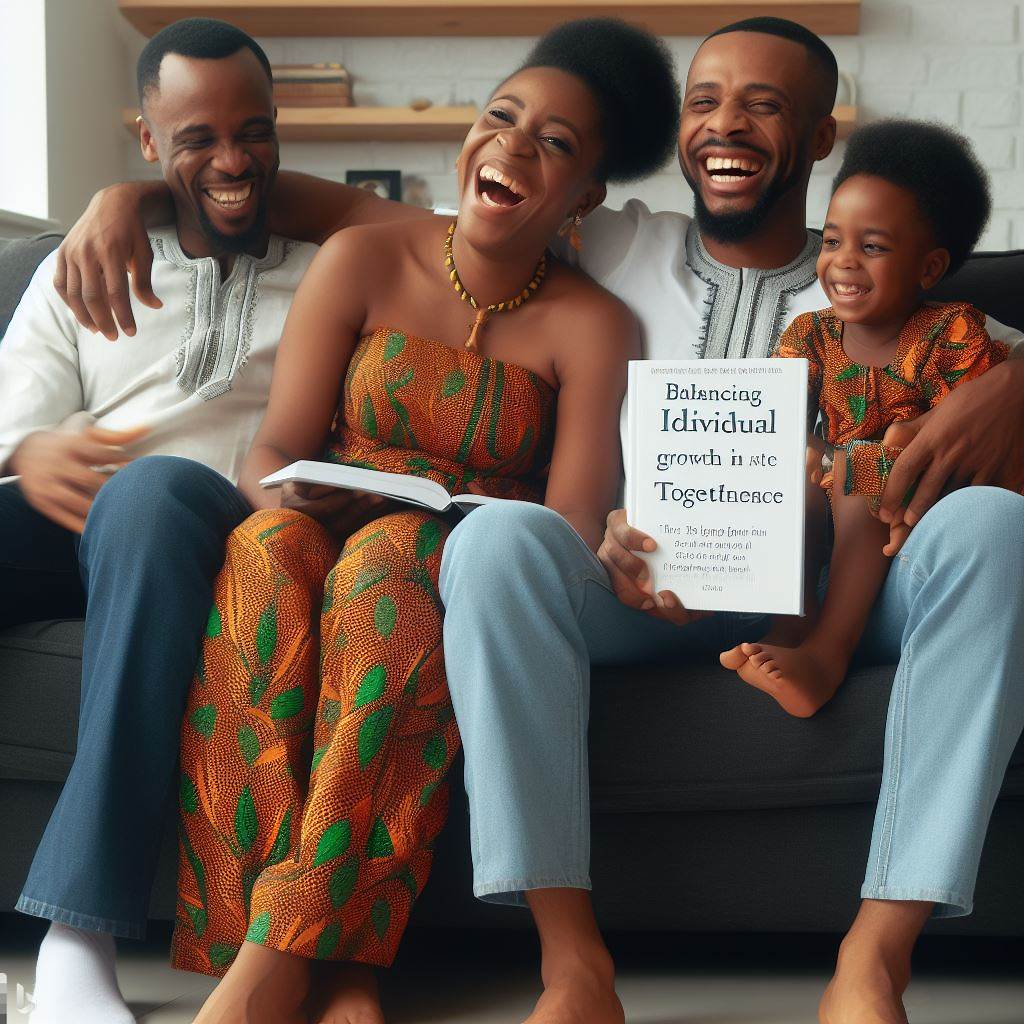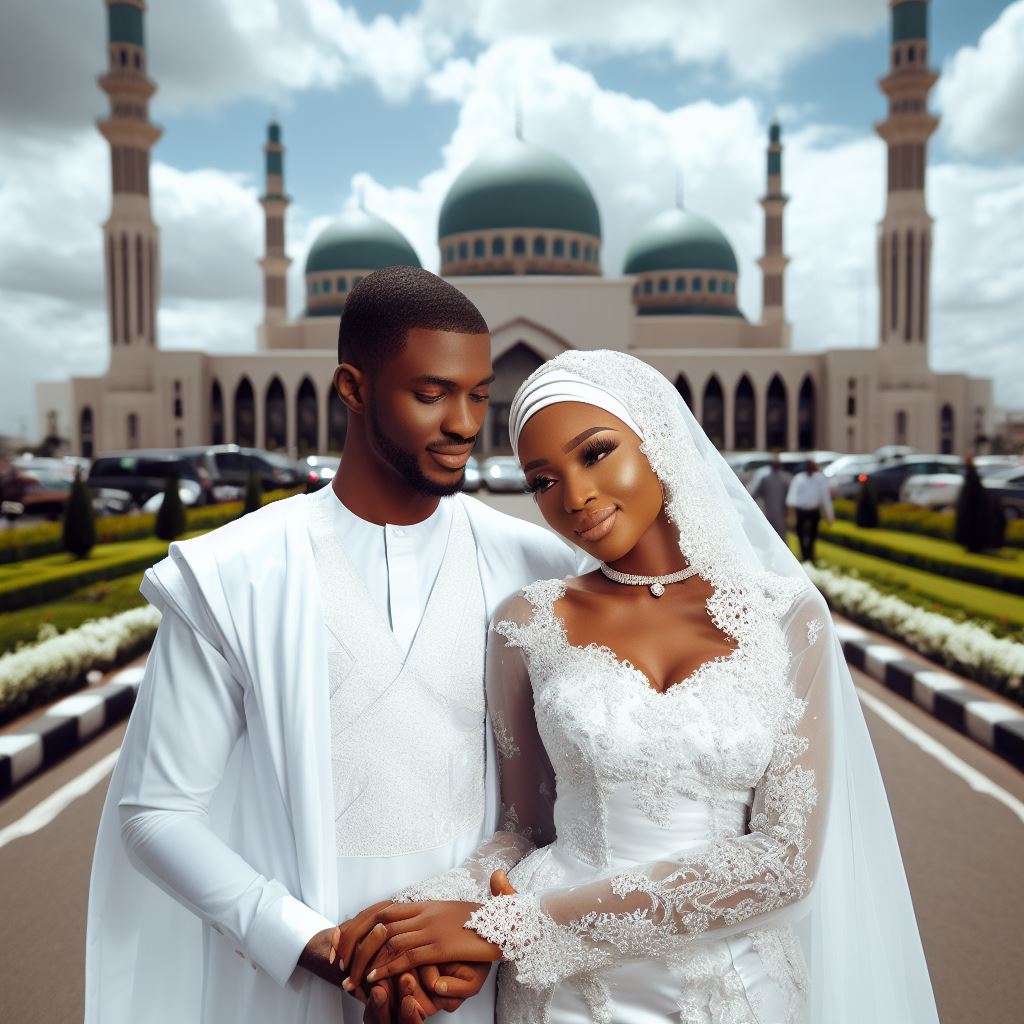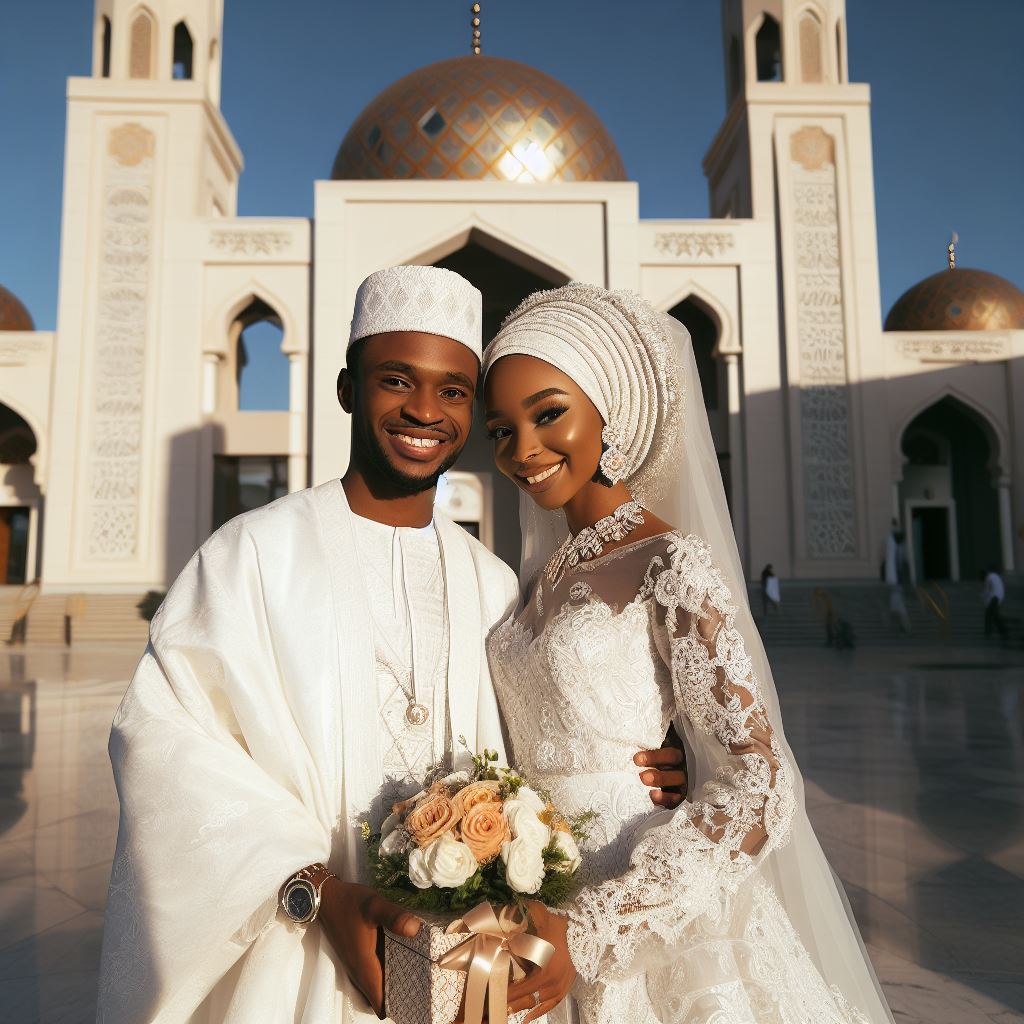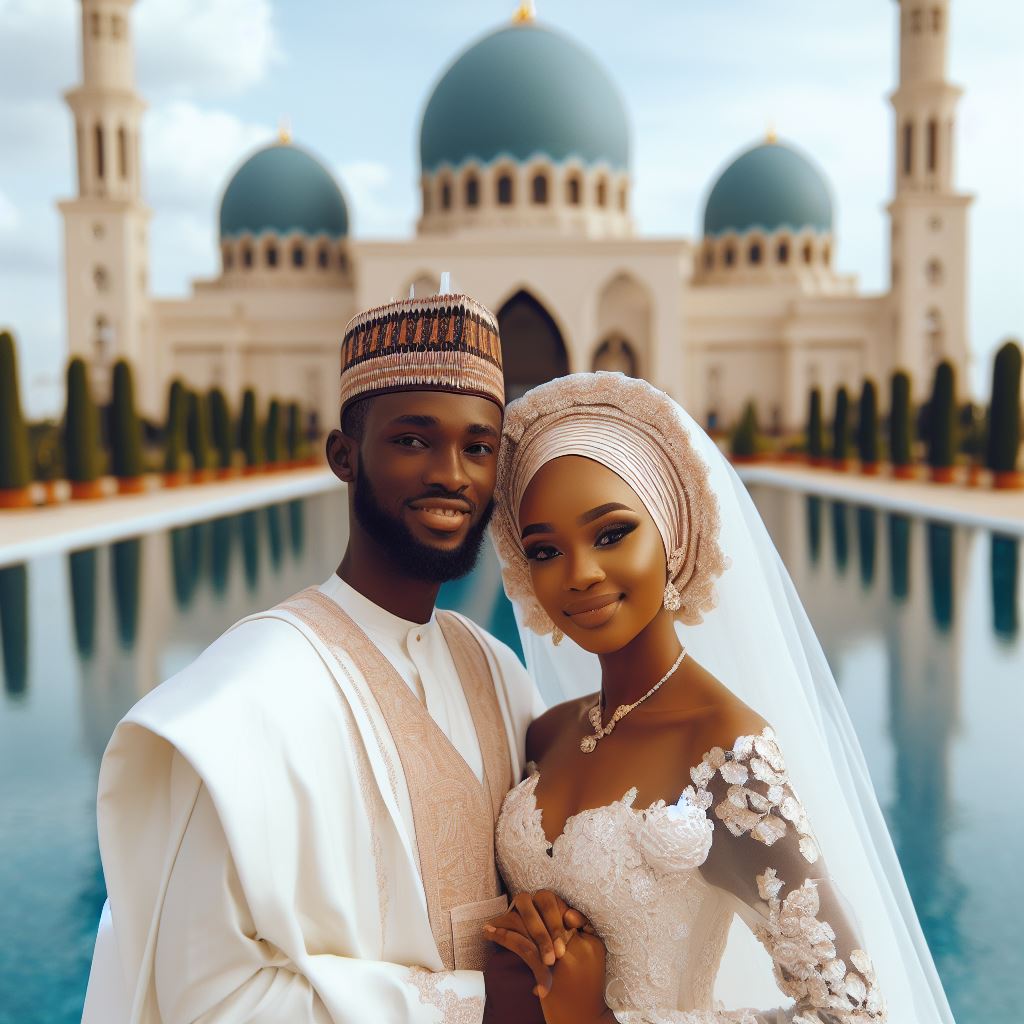Introduction
Marriage is a significant aspect of Nigerian society, deeply rooted in cultural and religious traditions.
Muslims in Nigeria place great importance on duas or supplications in their marital lives.
These duas, specific to each gender, hold a particular significance.
This blog post aims to explore the specific duas recited by men and women during Nigerian Muslim marriages.
Men in Nigerian Muslim marriages often recite duas that seek Allah’s blessings for a righteous and obedient wife.
They pray for a wife who is loving, nurturing, and supportive. In contrast, women typically recite duas asking Allah for a pious and caring husband.
Their supplications often stress the qualities of kindness, understanding, and provision in a husband.
These gender-specific duas reflect the traditional roles and expectations within Nigerian Muslim marriages.
By examining these gender-specific marriage duas, we gain insight into the values and expectations within Nigerian Muslim marriages.
It highlights the distinct roles assigned to men and women and sheds light on the importance placed on qualities and characteristics in a spouse.
Basically, these duas serve as a means for couples to seek Allah’s guidance and blessings as they navigate the journey of marriage in Nigeria.
Read: Using Marriage Duas to Overcome Marital Challenges
Gender-Specific Marriage Duas for Nigerian Men
The role of men in Nigerian Muslim marriages
In Nigerian Muslim marriages, men play a vital role as the providers and protectors of their families.
They have the responsibility to uphold Islamic values within the household and to lead their wives and children towards righteousness.
Common duas recited by men before and after marriage
- Duas for seeking a righteous wife: Nigerian Muslim men often recite specific prayers to seek guidance from Allah in finding a pious and righteous wife who will support them in their journey towards pleasing Allah.
- Duas for a successful and fulfilling marriage: Men recite duas to seek blessings and guidance from Allah for a strong and harmonious marital relationship. These prayers also ask for Allah’s help in resolving conflicts and maintaining love and understanding in the marriage.
- Duas for protection and guidance in providing for the family: Men also recite duas to seek Allah’s protection and guidance in fulfilling their role as providers for their families. These prayers ask for success in their professions or businesses and wisdom in managing financial matters.
Illustrative examples of specific prayers and supplications
One common dua recited by Nigerian Muslim men before marriage is: “O Allah, grant me a righteous wife who will be a source of peace and happiness in this world and the Hereafter.”
Another example of a supplication recited by men is: “O Allah, bless my marriage with love, understanding, and companionship. Grant us the patience and wisdom to navigate through challenges together.”
Moreover, men may recite this dua: “O Allah, provide me with the means to provide for my family, and bless my efforts in seeking halal provisions. Grant me the strength and guidance to fulfill my responsibilities.”
Importance of sincerity and intention while reciting duas
While reciting duas, it is crucial for Nigerian Muslim men to have sincere intentions and pure hearts.
Their supplications should be accompanied by genuine faith and a true desire to fulfill their roles as husbands and fathers.
Sincerity enhances the acceptance of their duas by Allah.
Generally, Nigerian Muslim men have specific duas that they recite before and after marriage.
These prayers emphasize seeking a righteous wife, a successful and fulfilling marital relationship, and guidance in providing for the family.
The importance of sincerity and intention is also highlighted, as it enhances the acceptance of their supplications.
By understanding the role of men in Nigerian Muslim marriages and embracing the power of heartfelt prayers, men can strive towards building strong and righteous households.
Read: Islamic Duas for Every Stage of Your Marriage Journey
Gender-Specific Marriage Duas for Nigerian Women
The role of women in Nigerian Muslim marriages
Women in Nigerian Muslim marriages play a crucial role as homemakers, nurturers, and supporters of their husbands and families.
Common duas recited by women before and after marriage
- Duas for finding a pious and caring husband: Nigerian women often supplicate for a righteous life partner who will lead them closer to Allah.
- Duas for a harmonious and loving marital relationship: Women ask Allah for a blissful and peaceful union with their spouses.
- Duas for fertility, health, and overall well-being of the family: Prayers are raised for the ability to conceive, maintain good health, and experience happiness in family life.
Illustrative examples of specific prayers and supplications
Nigerian women seek Allah’s blessings through heartfelt prayers like:
“O Allah, grant me a husband who possesses taqwa and guides our family towards righteousness.”
“Bless our marriage, O Allah, with love, understanding, and patience, making it a source of joy for us.”
“O Allah, bestow upon us good health, grant us righteous children, and keep our family united.”
Significance of seeking Allah’s blessings and guidance through duas
These gender-specific duas highlight the importance of relying on Allah and seeking His blessings to establish successful marriages and foster strong families.
Read: Marriage Duas for a Strong and Happy Relationship
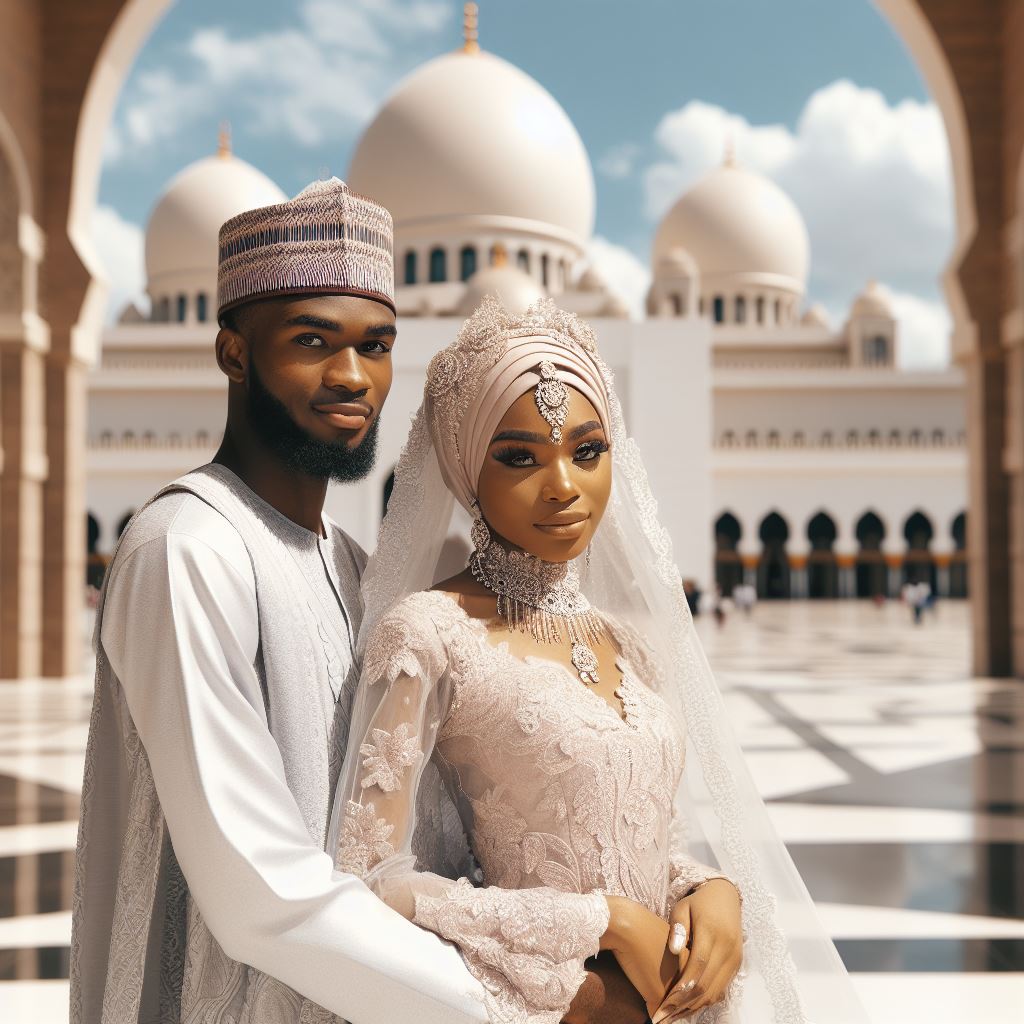
Delve into the Subject: How to Write Hausa-Inspired Wedding Congrats
Similarities and Differences Between Men and Women’s Marriage Duas
Comparative analysis of common themes and objectives in both genders’ duas
- Both men and women seek blessings and guidance for a successful and harmonious marriage.
- They express gratitude to Allah for their partner and ask for protection and happiness in their marriage.
- Both genders ask for forgiveness and seek strength to fulfill their roles and responsibilities as spouses.
- Men and women pray for love, understanding, and compatibility in their marriage.
Reflection on the cultural and societal factors influencing these differences
- The cultural and societal expectations placed on men and women affect their specific dua requests.
- Men may focus more on providing for their families and being good leaders, while women may emphasize nurturing and support.
- These differences reflect traditional gender roles that have been ingrained in societies across the world.
- Social norms may vary, and individuals’ specific dua requests could be influenced by their unique cultural backgrounds.
The underlying unity and complementary nature of these duas
- Although men and women may have different dua requests, both genders ultimately seek a successful and fulfilling marriage.
- These duas complement each other, as they address different aspects necessary for a balanced and harmonious relationship.
- Both genders acknowledge the significance of mutual respect, love, and understanding in their prayers.
- The unity lies in the shared desire for a blessed and prosperous marriage, irrespective of the specific dua requests.
Importance of understanding and respecting each other’s dua practices
- Recognizing and respecting the differences in dua practices between genders fosters empathy and understanding.
- It allows individuals to appreciate the diverse perspectives and roles each gender brings to a marriage.
- By understanding and supporting each other’s dua practices, couples can strengthen their bond and spiritual connection.
- Maintaining an open dialogue and embracing each other’s dua traditions promote a more harmonious and inclusive marital relationship.
Essentially, although men and women have different dua requests in their marriage duas, these differences should be seen as complementary, reflecting the diverse roles and responsibilities each gender holds.
It is crucial to understand and respect each other’s dua practices, as it promotes unity, empathy, and a deeper spiritual connection in a marriage.
By acknowledging the similarities and differences in their duas, couples can enhance their marital bond and work towards a successful and blessed union.
Read: How to Perform Marriage Duas: A Step-by-Step Guide
Find Out More: Why Couples in Nigeria Are Considering Marriage Contracts
Conclusion
Recap of the significance of duas in Nigerian Muslim marriages
Duas play a crucial role in Nigerian Muslim marriages, serving as a means of seeking divine intervention and blessings for the couple.
These prayers serve as a reminder of the importance of spirituality and faith in the marital bond.
Summary of gender-specific marriage duas for men and women
In Nigerian Muslim marriages, both men and women have specific duas to recite.
Men are encouraged to pray for a righteous spouse and a blessed household, while women pray for a pious husband and a harmonious marriage.
These duas reflect the unique roles and responsibilities of each gender within the marriage.
Encouragement to incorporate these duas in daily life and marriage practices
It is essential for Nigerian Muslim couples to incorporate these gender-specific duas in their daily lives.
By regularly reciting these prayers, they can seek guidance, strengthen their marital bond, and strive towards a more fulfilling and righteous relationship.
Final thoughts
Prayers hold immense power in Nigerian Muslim marriages.
They provide solace, hope, and a connection to the divine.
By embracing the practice of dua, couples can find strength, guidance, and blessings to navigate the challenges and joys of married life.
Let us all remember the significance of these prayers in building lasting and fulfilling relationships in Nigerian Muslim marriages.

